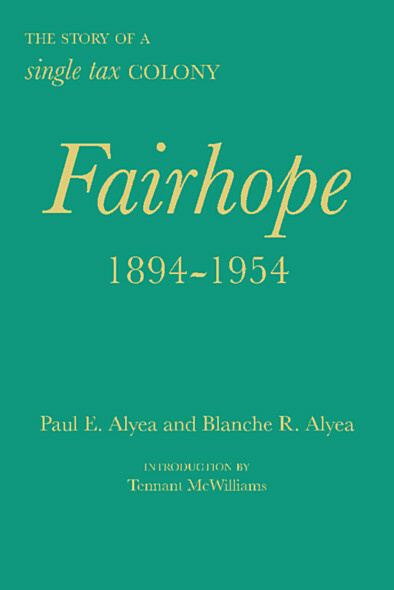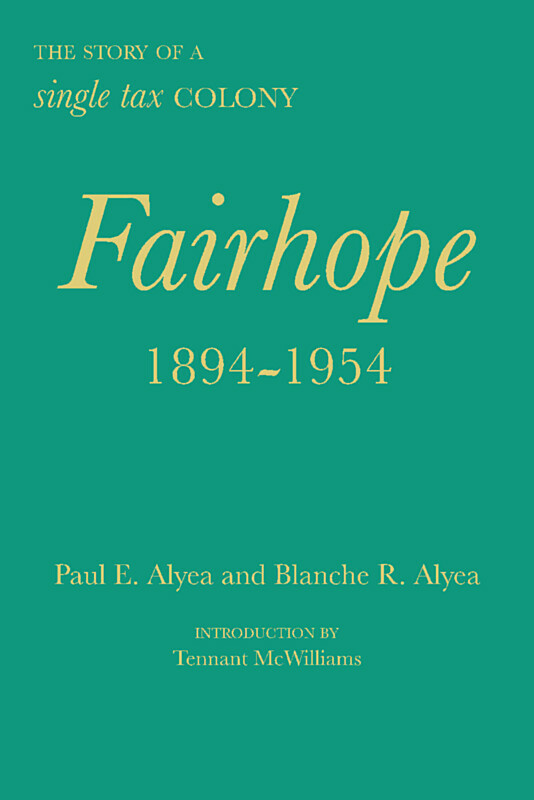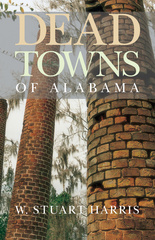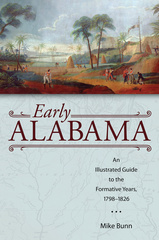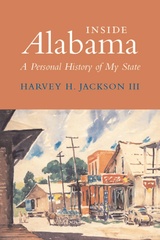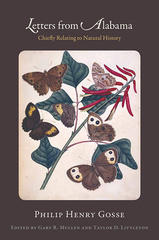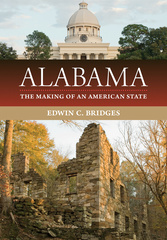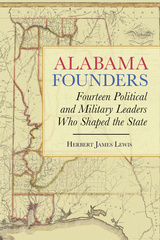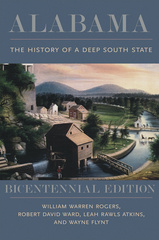Our shopping cart is currently down. To place an order, please contact our distributor, UTP Distribution, directly at utpbooks@utpress.utoronto.ca.
Fairhope, 1894–1954
The Story of a Single Tax Colony
SERIES:
Library of Alabama Classics
University of Alabama Press
The remarkable and improbable story of the utopian single-tax social experiment that gave rise to one of the most unique and colorful communities along the Gulf Coast
On November 15, 1894, a small group of men and women met on a remote stretch of Mobile Bay’s eastern shore to establish a colony. It was a decidedly utopian undertaking in a period characterized by many similar social experiments and ideal communities, most of them failures. This group, which gathered at “Stapleton’s pasture” to found Fairhope, hoped to demonstrate the benefits of the single tax as a means of curing social and economic evils, making a practical test of the doctrines of economist Henry George.
Today, the wealth of parks, public and private schools, art galleries, and restaurants, combined with quaint shops and residential areas and a vibrant nautical life, all attest to Fairhope’s unique position among many older communities in the same region. Its residents represent a diverse array of interests and talents, and with a strong civic regard for individualism and creativity, Fairhope is also a haven for painters, potters, writers, and musicians.
Paul E. and Blanche R. Alyea’s Fairhope, 1894–1954, first published in 1954, is the history of this unique and improbable community and the single-tax social experiment that gave rise to it. This new edition offers an introduction by historian and Fairhope resident Tennant McWilliams, giving invaluable context and entertaining anecdotes not just regarding Fairhope’s founding but about the Alyeas themselves—all to the abiding value of their story for today’s residents and visitors.
On November 15, 1894, a small group of men and women met on a remote stretch of Mobile Bay’s eastern shore to establish a colony. It was a decidedly utopian undertaking in a period characterized by many similar social experiments and ideal communities, most of them failures. This group, which gathered at “Stapleton’s pasture” to found Fairhope, hoped to demonstrate the benefits of the single tax as a means of curing social and economic evils, making a practical test of the doctrines of economist Henry George.
Today, the wealth of parks, public and private schools, art galleries, and restaurants, combined with quaint shops and residential areas and a vibrant nautical life, all attest to Fairhope’s unique position among many older communities in the same region. Its residents represent a diverse array of interests and talents, and with a strong civic regard for individualism and creativity, Fairhope is also a haven for painters, potters, writers, and musicians.
Paul E. and Blanche R. Alyea’s Fairhope, 1894–1954, first published in 1954, is the history of this unique and improbable community and the single-tax social experiment that gave rise to it. This new edition offers an introduction by historian and Fairhope resident Tennant McWilliams, giving invaluable context and entertaining anecdotes not just regarding Fairhope’s founding but about the Alyeas themselves—all to the abiding value of their story for today’s residents and visitors.
PRAISE FOR THE FIRST EDITION:
‘The Alyeas have had a long acquaintance with Fairhope, he having known it from childhood, and she for nearly twenty-five years. Notwithstanding their familiarity with the single tax doctrine and admiration for ‘most of the singletaxers’ they have known, yet ‘neither claims to be a singletaxer.’ In spite of this understanding and sympathetic background the writers have presented an objective study.’
—American Journal of Economics and Sociology
Paul E. Alyea (1899–1975), who was a professor of finance at the University of Alabama, and Blanche R. Alyea (1905–1988) were both graduates of the University of Illinois and longtime residents of Fairhope. Both are buried in the Fairhope Colony Cemetery.
Tennant McWilliams, a native Alabamian with experiences along Mobile Bay’s eastern shore dating back to the 1940s, is a retired university administrator and an unretired historian. He and his wife, Susan, live in Fairhope on Single Tax Colony property.
Tennant McWilliams, a native Alabamian with experiences along Mobile Bay’s eastern shore dating back to the 1940s, is a retired university administrator and an unretired historian. He and his wife, Susan, live in Fairhope on Single Tax Colony property.

